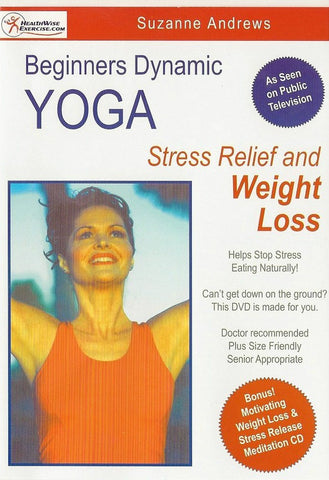by Suzanne Andrews

As any dieter knows, there is a lot of information floating around about diet and exercise - not all of it
good. The worst part is that some of the 'tips' you read can actually sabotage your weight loss and make you fatter!
Let's separate fact from fiction and look at seven of the most common mistakes dieters make.
Mistake #1: Cutting too much fat.
Many dieters believe that the less fat they eat, the better. What they don't realize is that fats are important because they make us feel satiated. Fat is also digested rather slowly, which helps stabilize blood sugar levels. Eat too little of it, and you could find yourself snacking more frequently but feeling less satisfied.
Plus, many fat-free foods contain a surprising amount of sugar to improve their flavor, and sugar can lead to even stronger cravings and weight gain.
Instead of cutting all fat from your diet, try consuming moderate portions of heart-healthy fats like avocados, nuts, olive oil, reduced-fat dairy products, and salmon. These will fill you up without harming your health.
Mistake #2: Cutting too many carbs.
Like fats, carbs have a place in a healthy diet. If you dramatically cut your carb intake, you might notice a quick initial weight loss. This is water weight. When your muscles store carbohydrates, they also store water. When you burn through these carbohydrate stores, you also secrete the extra water. The pounds you lose in this fashion will be quickly regained when you start eating carbohydrates again.
Carbs are an important energy source. They also promote a sense of well-being. The secret is to eat a reasonable amount of complex carbohydrates like those found in fruits and vegetables, whole grains, seeds, nuts, and beans.
Avoid simple sugars like soda and candy. They are a source of empty calories and will only increase your cravings for more sweets.
Mistake #3: Cutting too many calories.
All weight loss boils down to one simple rule: you must burn more calories than you consume. You shouldn't overdo it, though. If you eat too little, your body will rebel by slowing down its metabolism and losing lean muscle mass.
You can avoid this by eating a minimum of 1,200 calories each day. A weekly caloric deficit of 3,500 calories will result in the loss of one pound. If you don't eat enough, you risk setting yourself up for a hunger-induced binge.
Mistake #4: Avoiding dairy products.
Dairy products have a bad reputation among dieters who consider them to be too high in fat and lactose. While it's true that too much whole milk and rich cheese can contribute to weight gain, there is ample evidence that low-fat dairy products are an excellent choice for dieters.
Dairy products contain a hormone called calcitriol. This hormone tells your body to burn more fat and to convert less sugar to fat. Plus, the protein in dairy products helps you feel fuller longer. Try to consume three servings of low-fat dairy each day.
Mistake #5: Following the latest fad.
Nobody likes to fail at their diet, but some of the popular diet plans you read about in the headlines are simply unrealistic and unhealthy. I tried them ALL. They are set up to fail.
Who can live on a diet of lemonade and maple syrup? Who can be happy eating nothing but cabbage soup? Nobody, that's who. Stay away from diets that promote fast weight loss through radical means.
The very best diet is a well-balanced eating plan that you can comfortably stick with for the rest of your life. If a diet is too drastic or unnatural, it's not a viable lifestyle choice. And if a diet says you will not have to exercise, that is simply not true. Especially if you are over 40. The metabolism slows down during the middle age to senior years and you must exercise to get your metabolism in the fat burning mode.
Mistake #6: Using stimulants.
Caffeine and ephedra are often touted as natural weight loss aids and hunger reducers. While these stimulants can make you feel less hungry, they can also cause high blood pressure, heart palpitations, and stress.
When your body is stressed, it produces too much of the hormone cortisol, which causes your body to go into survival mode. While in this mode, your body sends out signals for you to eat more food, which it then stores as extra fat.
Nobody needs stimulants to help them lose weight. Reduce your hunger by reducing the stress in your life and eating small, frequent, nutritious meals. That being said, I’m not saying to stop drinking coffee if you feel you must. I admit, I have one cup every morning. Everything in moderation, unless your doctor says otherwise.
Mistake #7: Avoiding strength-training exercises.
Some dieters, particularly women, avoid strength-training because they don't want to "bulk up" and gain weight. This is unfortunate, because muscles speed up your metabolism. Strength training actually promotes fat loss and, like all exercise, helps your body release feel-good endorphins.
Don't let the scale be your only measure of dieting success. Get a tape measure and keep track of the inches you lose when you add strength-training to your workouts.

Own Total Strength & Conditioning Workout
Suzanne Andrews founded Functional Fitness in 2008, the most popular fitness series for boomers and seniors broadcasting on over 159 Public Television stations throughout the US and Canada. Read Suzanne’s inspiring comeback story of how she survived a near fatal accident, From Deaths Door to Producing a National Fitness Series. Feel free to send Suzanne a message here.








